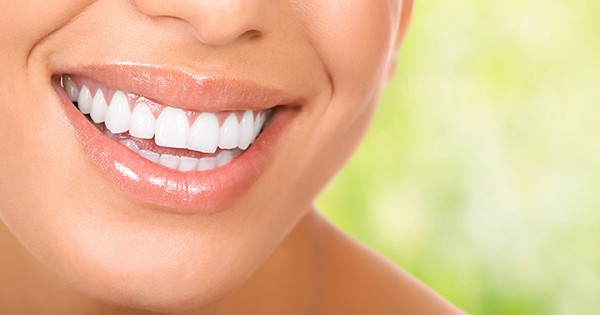Teeth Whitening is a non-invasive, cosmetic procedure using a natural product to lighten the shade of teeth. Different products have different concentrations of ingredients to help achieve this whiter smile.
There are many different types of whitening products out on the market today, from whitening toothpastes and over the counter whitening gels, to take-home bleach trays and professional whitening provided by dental offices. It can be very confusing, which is why we decided to create a guide on different whitening services in order to inform our patients on what we provide at Orchard Family Dentistry in Centennial.

Whitening toothpastes typically improve the shade of teeth by removing surface stains caused by foods and drinks, including from coffee, wine, or smoking. Since whitening toothpastes do not contain a strong concentration of bleaching material, you will find that the shade of the teeth improve slightly (about 1 shade improvement). Note that whitening toothpastes do have more abrasive ingredients and are not recommended for patients with sensitive teeth. Whitening toothpastes can be purchased at any grocery store.
Whitening products found at groceries stores can improve the shade of teeth using a lower concentration of bleaching material. Whitening strips, for instance, are placed on the teeth for 30 minutes daily and use around 14% hydrogen peroxide (or another bleaching product). These strips typically last 2 weeks and allow the bleaching material to permeate deeper into the tooth to remove intrinsic stains. The shade of teeth will improve slightly more than whitening toothpastes (about 1-2 shade improvement, varying from patient to patient).
Bleach trays are made in a dental office and provided for a patient in order to use a higher concentration bleaching material inside the tray. Trays are typically worn daily for 30 minutes. The typical concentration of the bleach gels can range from 10-45% Carbamide Peroxide with potassium nitrate and fluoride. Carbamide Peroxide gel works more efficiently to whiten the teeth over a longer period of time to remove intrinsic stains. Typically, patients will find a 2-3 shade improvement.
Orchard Family Dentistry uses an in-office power whitener to provide the patients of our dental office in Centennial with a brighter, whiter smile. The whitening gel used is a 40% hydrogen peroxide formula with potassium nitrate and fluoride. The entire procedure takes about 1 hour and patients notice a significant difference from start to finish shade, with an improvement of 3 or more shades. It is important to note that if you have sensitive teeth, whitening procedures may not be for you.
Whitening can cause teeth to feel more sensitive. It is best to avoid drinking a hot or cold beverage, eating sweet foods, or brushing teeth immediately after the treatment. Typically, the sensitivity will decrease in 2-3 days. In time, you may notice that the whitening treatment is still working, as your teeth continue to appear whiter.
Here are a few tips to avoid sensitivity following whitening treatment:
Before whitening, brush your teeth with sensitive toothpaste (i.e., Sensodyne) for at least 1 week before the start of your whitening treatment
After whitening:
For extreme sensitivity:
Patients who already have hypersensitive teeth (i.e., sensitive to cold) are not good candidates for whitening treatment as this can make teeth more sensitive. Also, patients with a peroxide allergy, cavities, exposed root surface of teeth, and young children should avoid whitening treatment.
Just like pores on the skin, teeth have tubules which allow stain to permeate and darken teeth. Whitening can work for most people to remove the stain from the tubules and give a whiter, brighter smile. Some patients have more difficult tubules than others and may need to whiten more often. Similar to coloring your hair, whitening has to be done on a regular basis because stain can return in time.

At Orchard Family Dentistry, we believe it is our responsibility to provide a comfortable and friendly environment for our patients. We support our patient’s needs using gentle techniques and placing the highest priority on the quality of our dental work as well as our connection with our patients.
Monday
Tuesday
Wednesday
Thursday
Friday
Saturday/Sunday
7:30AM – 4:00PM
7:30AM – 4:00PM
9:00AM – 5:30PM
9:00AM – 5:30PM
by appointment
closed
Privacy | All Content Copyright 2022 Orchard Family Dentistry. All Rights Reserved. Web Design by OmniPremier.com | Sitemap